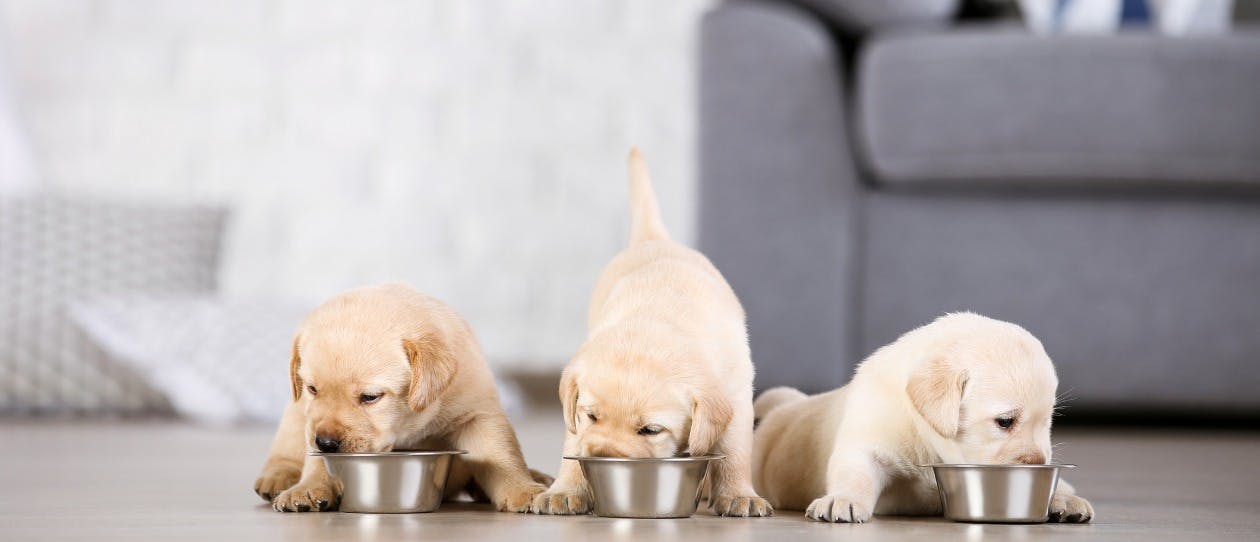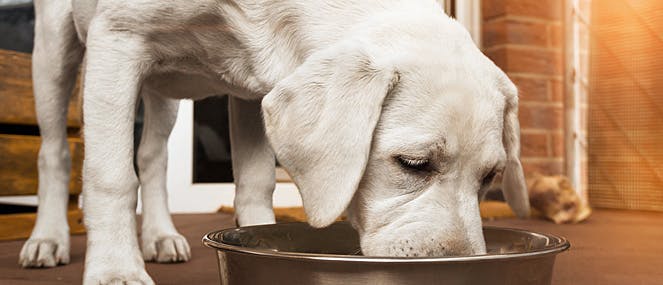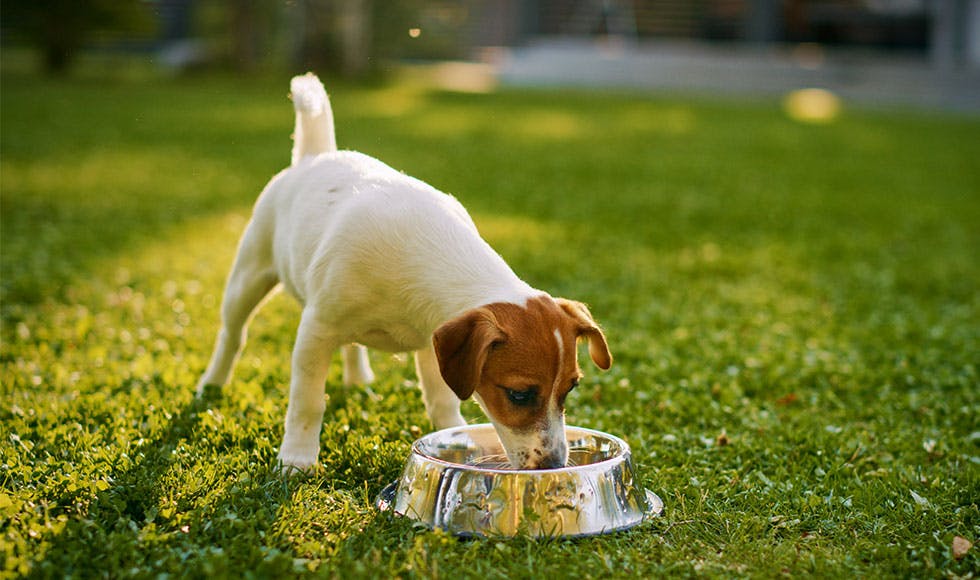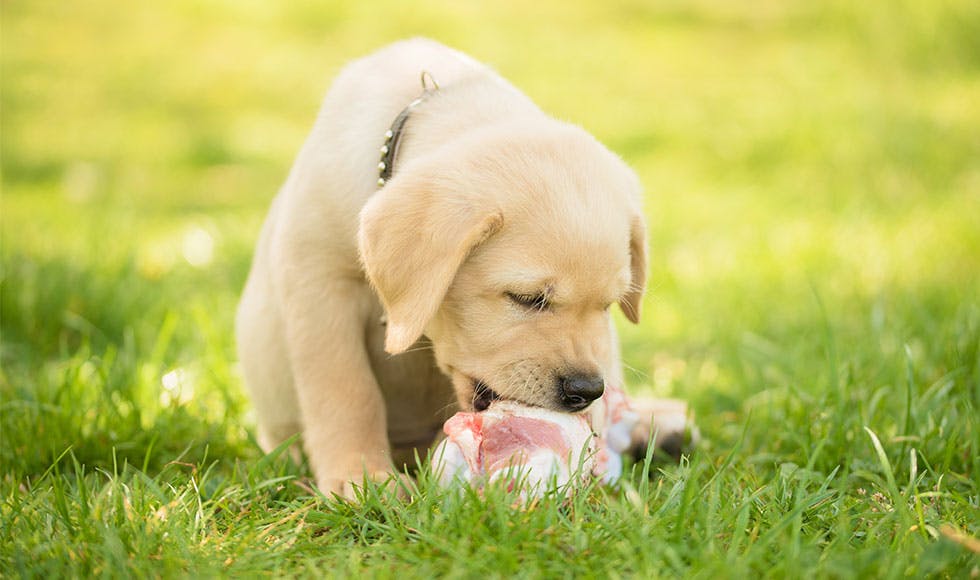
- A Guide To Perfect Your Pet's Health/
- Manage Your Dog's Digestive Health/
- Breaking down the gut microbiome
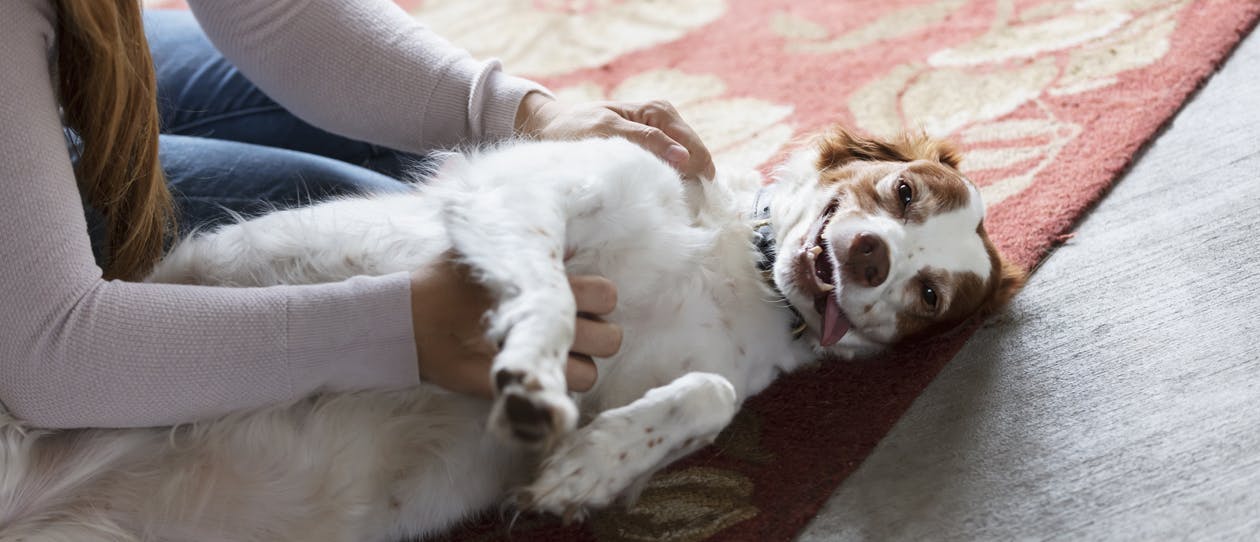

So what is the gut microbiome?
Your pet’s gastrointestinal tract is home to trillions of microorganisms, which are essential to their overall health. This diverse and highly complex collection of microorganisms, including bacteria, yeast, protozoa, archaea, and viruses is known as the gut microbiome (or microbiota).
The gut microbiota has many important functions, including:
- Nutrient breakdown
- Roles in immunity
- Vitamin synthesis
- Production of short- chain fatty acids and other postbiotics
- Maintaining gut health
The most vital function of the gastrointestinal microbiome is to protect your pet against infection by pathogenic or ‘bad’ bacteria.
Dybiosis: an imbalance in the gut
The balance between beneficial ‘good’ and pathogenic ‘bad’ bacteria in the gut microbiome of adult dogs and cats is usually remarkably stable. However, a disruption in this normal balance can occur at times, and is known as dysbiosis.
The most common causes of dysbiosis include:
- Medications, particularly antibiotics
Antibiotic use has been shown to reduce the species diversity in the microbiome, thereby decreasing the good gut microorganisms, which in turn leads to an increase in the bad. Another concerning factor is that the effects can persist for several weeks to months, even after the antibiotic course is complete.
- Illness
Gut related illnesses e.g. allergies, diabetes, and inflammatory bowel disease (IBD), have the potential to cause changes in the microbiome, and to favour the growth of families of bacteria that are associated with disease.
- Stressful events
A stay at the kennels or the cattery, moving house, or a new pet at home can all be stressful events, which lead to dysbiosis and diarrhoea.
- Dietary indiscretion
When your dog or cat ingests something they shouldn’t, such as table scraps or garbage, this can very easily lead to gut imbalances and an upset tummy as a result.
What does this look like in my pet?
It's important to recognise the signs of dysbiosis. These may vary from one pet to another, but common signs include:
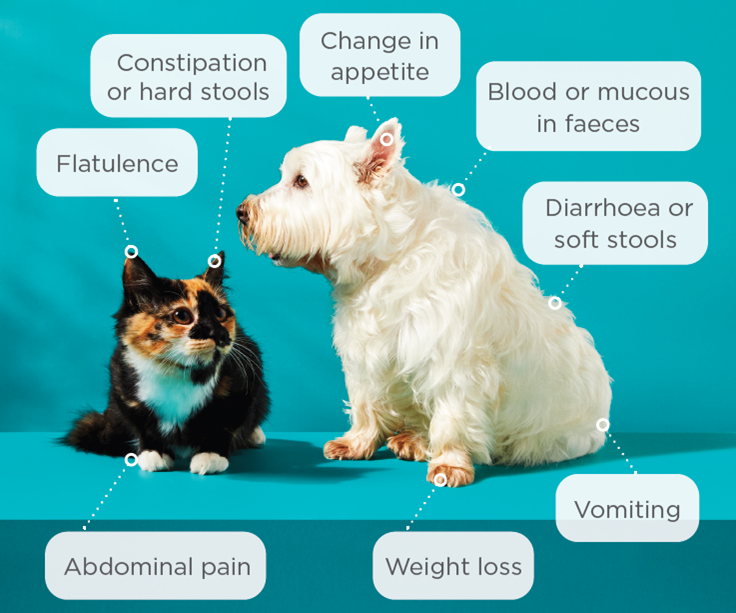
How can we restore the gut balance?
Bring out the probiotics of course! Probiotics are formulations of live microorganisms (generally bacteria) that have beneficial effects on the recipient when delivered in adequate amounts. Probiotics can:
- Benefit the pet by stimulating the growth of the ‘good’ resident bacteria, whilst maintaining protection against disease-causing microorganisms
- Help improve the intestinal barrier
- Increase the secretion of substances which help to prevent disease-causing bacteria from colonising the gut
- Produce substances that regulate the immune response and reduce inflammation
Supporting your pet’s digestive health with PAW
- PAW Digest + Protect Puppy Care
- PAW Digest + Protect Kitten Care
Specifically formulated with bovine colostrum, beta glucan, spirulina and prebiotics, these tasty fish and chickpea chews aid in enhancing immunity and gut health in your growing fluffball at a stage of their life when these needs are at their highest. They also contain essential vitamins and minerals which contribute to healthy growing bones and joints, proper functioning of the nervous system, and healthy skin, coat and nails.
- PAW DigestiCare™ for Dogs and Cats
Containing a highly palatable blend of probiotics (Bacillus subtilis and Bacillus licheniformis), prebiotics, enzymes and fermented wholefood powder, PAW DigestiCare™ is designed to help promote everyday digestive health and general wellbeing in all dogs and cats by enhancing the gastrointestinal microbiome and improving stool quality.
Keep your cat's tummy happy with a vet-approved blend of Enterococcus faecium SF68 (probiotic), and a prebiotic fibre in an easy-to-use capsule format. Enterococcus faecium SF68 has been clinically proven to reduce the severity and duration of diarrhoea, particularly in cats that are stressed or receiving antibiotics.
PAW Digesticare™ SB contains 10 billion CFU of Saccharomyces boulardii, a probiotic yeast that can be given in conjunction with antibiotics to reduce the duration & occurrence of antibiotic associated diarrhoea, and to help support digestive system health in dogs. It comes in an easy-to-use capsule format.

